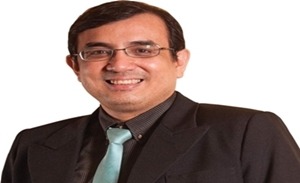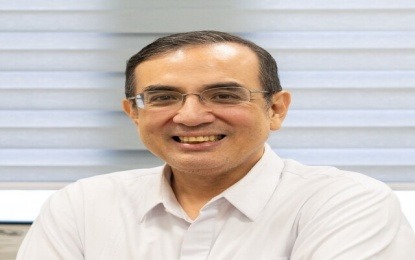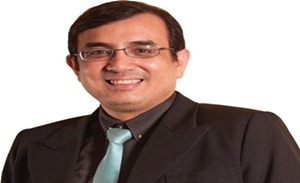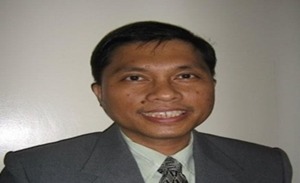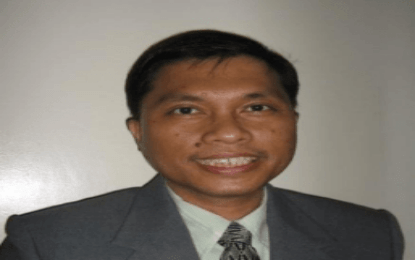ESPRESSO MORNINGS
By Joe Zaldarriaga

Under his guidance, Meralco achieved unprecedented milestones, clinching a historic 3-peat Company of the Year title at the IABC Philippine Quill Awards, scoring the only PR Team of the Year trophy bestowed at the Anvil Awards, and securing numerous honors at international and local communication awards.
Manong Joe’s leadership also extends as a respected member of the Board of Trustees for the Public Relations Society of the Philippines (PRSP), concurrent with his role as Chairman of the International Association of Business Communicators Philippines (IABC Philippines) where he also served as its President.
Manong Joe is a distinguished awardee of the medallion of honor and scroll of commendation from the University of Manila, owing to his years in public service as a communications professional. He shares his insights through columns in renowned publications, including The Philippine Star’s The Z Factor, and Philippine News Agency’s ESPRESSO MORNINGS.
Last month, a colossal blackout hit the Iberian Peninsula — leaving mainland Portugal and peninsular Spain in the dark for more than 10 hours, lasting for as long as 16 hours in some areas.
The blackout, which caused severe disruption in services such as telecommunications and transportation systems reignited discussions on transitioning responsibly to renewable energy sources as Portugal and Spain push for ambitious green energy targets.
Spain’s grid operator, Red Eléctrica, attributed the failure to insufficient voltage regulation from major power plants, while energy companies like Iberdrola and Endesa pointed to outdated grid systems and lack of interconnection as contributing factors.
The incident highlighted the vulnerabilities of rapidly transitioning to renewable energy while infrastructure readiness lags behind.
I recently engaged Meralco First Vice President and Head of Networks Froilan J. Savet on this topic to understand how the Iberian blackout can serve as a cautionary tale for the Philippines given our interest in increasing the share of renewable energy in our power supply mix.
Engr. Savet enlightened me on the issue, explaining that the Iberian blackout was a problem on inertia. The high integration of variable renewable energy sources into the grid resulted in a low inertia system which made the Iberian Peninsula more vulnerable to power swings and imbalances.
Simply put, the 2025 Iberian blackout wasn’t a failure of renewable energy. It was a stability problem.
Traditionally, coal, gas, and nuclear plants have provided baseload power due to their stability. Renewables however are intermittent by nature.
Until large-scale storage becomes widespread, relying too heavily on renewables without diversification and adequate infrastructure could result in instability.
The lesson here is clear: for all its merits, renewable energy is not yet a reliable baseload power source and its integration into our power supply mix should go hand in hand with investment in grid modernization and flexible power generation to ensure that we don’t repeat the mistakes of Spain and Portugal of moving faster than our infrastructure can support.
At present, our grid is already stretched by aging infrastructure and powerful typhoons. Injecting variable renewables without firm capacity in place is a looming disaster that could result in a nationwide blackout.
This, however, does not mean that we abandon the green agenda altogether. Rather, it is a reminder for the Philippines to pursue renewables wisely and strategically.
The key is balance. Pursuing sustainability should not sacrifice energy stability and security.
The Philippine Energy Plan aims to increase the share of renewable energy in our power generation mix to 35 percent by 2030, with a further expansion to 50 percent by 2040.
As we scale to more variable renewable energy sources, let’s not just add renewables. Let’s make sure that our grid is ready—technically, operationally, and locally.
The country must address issues such as grid modernization, energy storage, and the integration of balancing power sources.
Distribution utilities such as Meralco must lead not just in the delivery of electricity service but in ensuring resilience as well.
The Philippines has made huge strides in the pursuit of a more sustainable energy future but we must not be too complacent. The Iberian blackout is a lesson on balance and stability.
We must adopt a holistic approach that prioritizes the green agenda along with energy security and stability.
After all, a truly sustainable energy future can only be achieved if there is reliable, stable, and equitable energy for all Filipinos.

